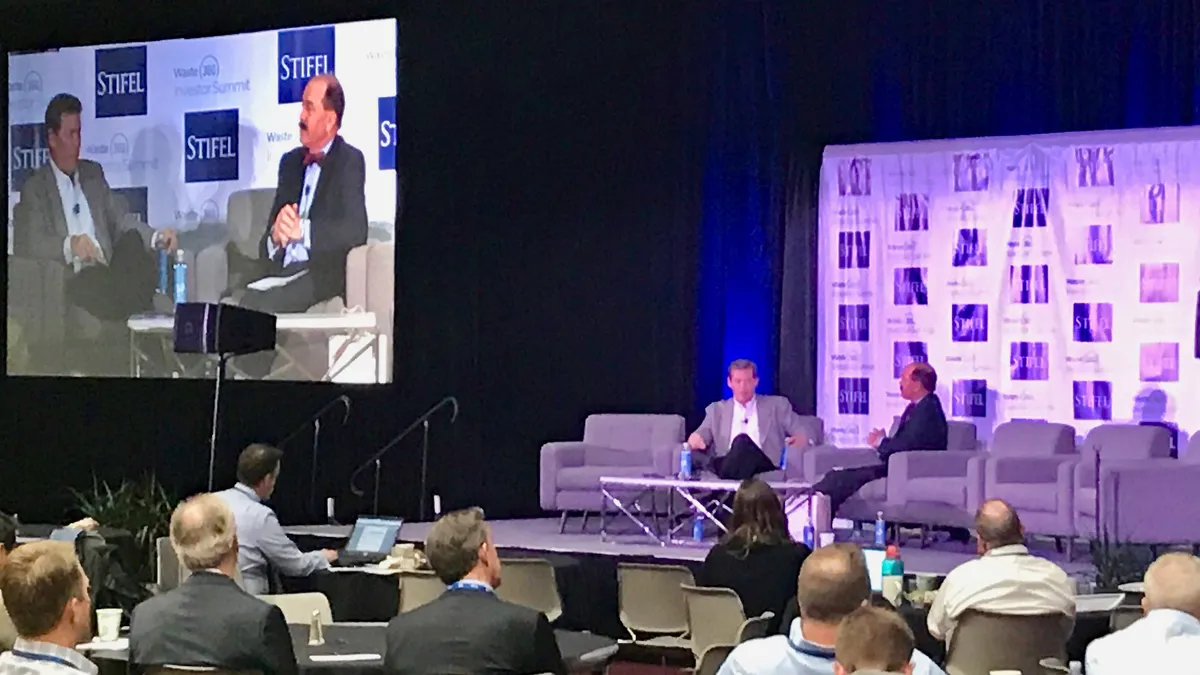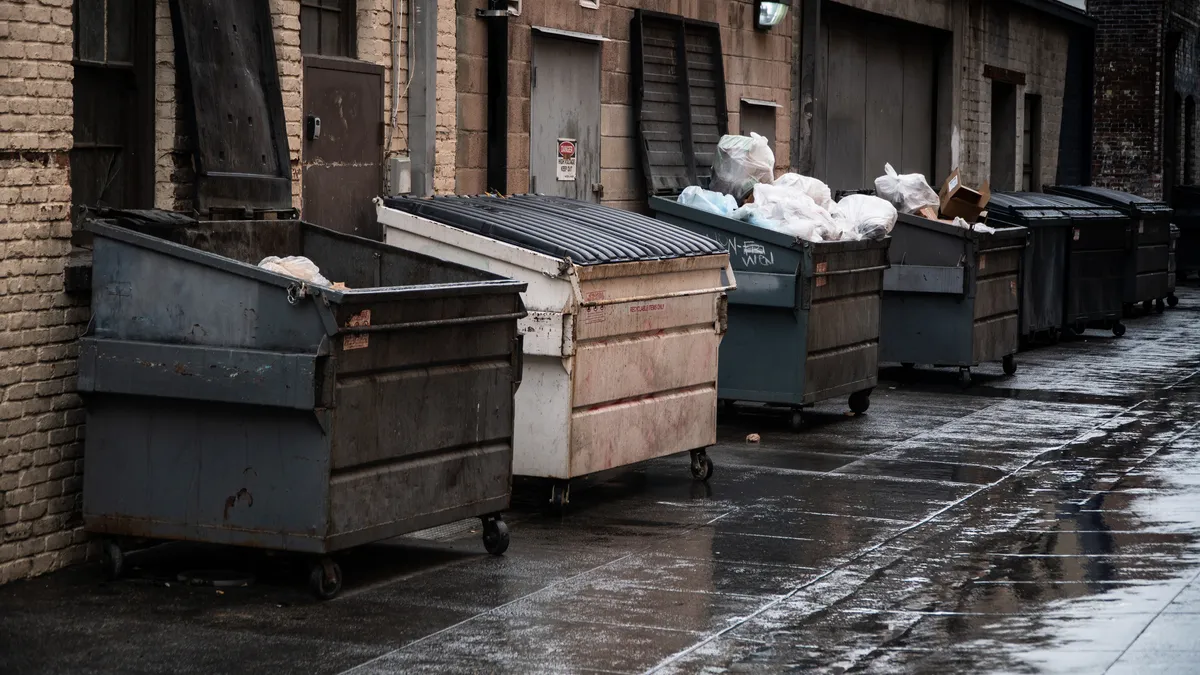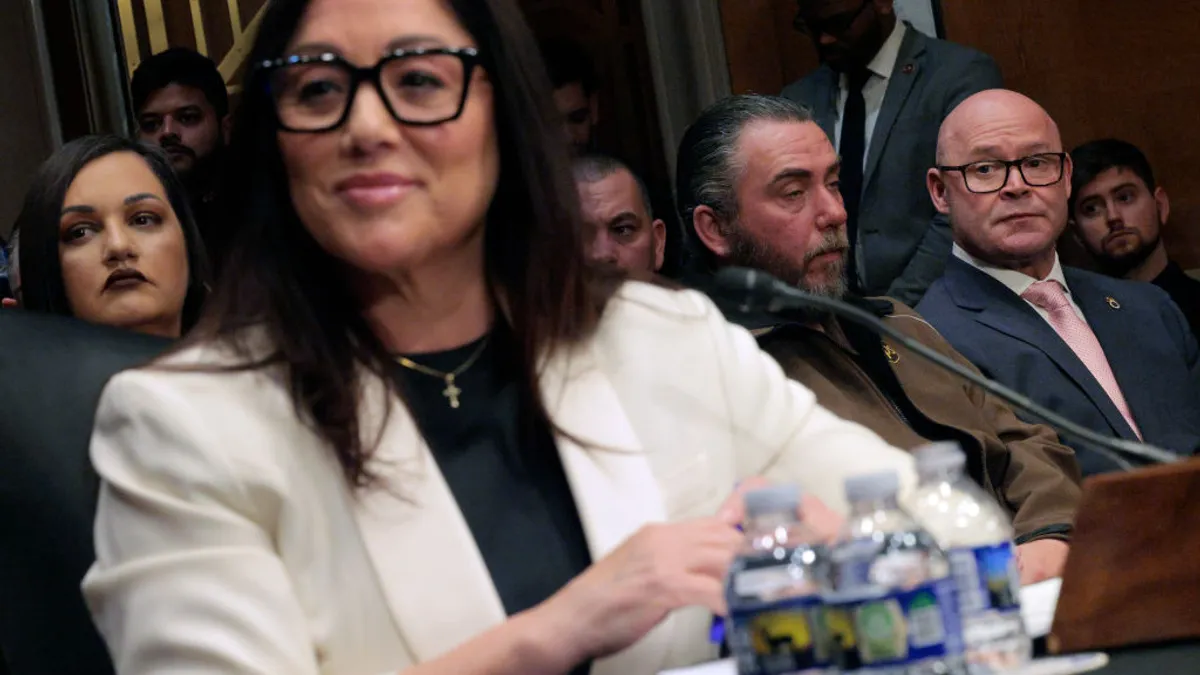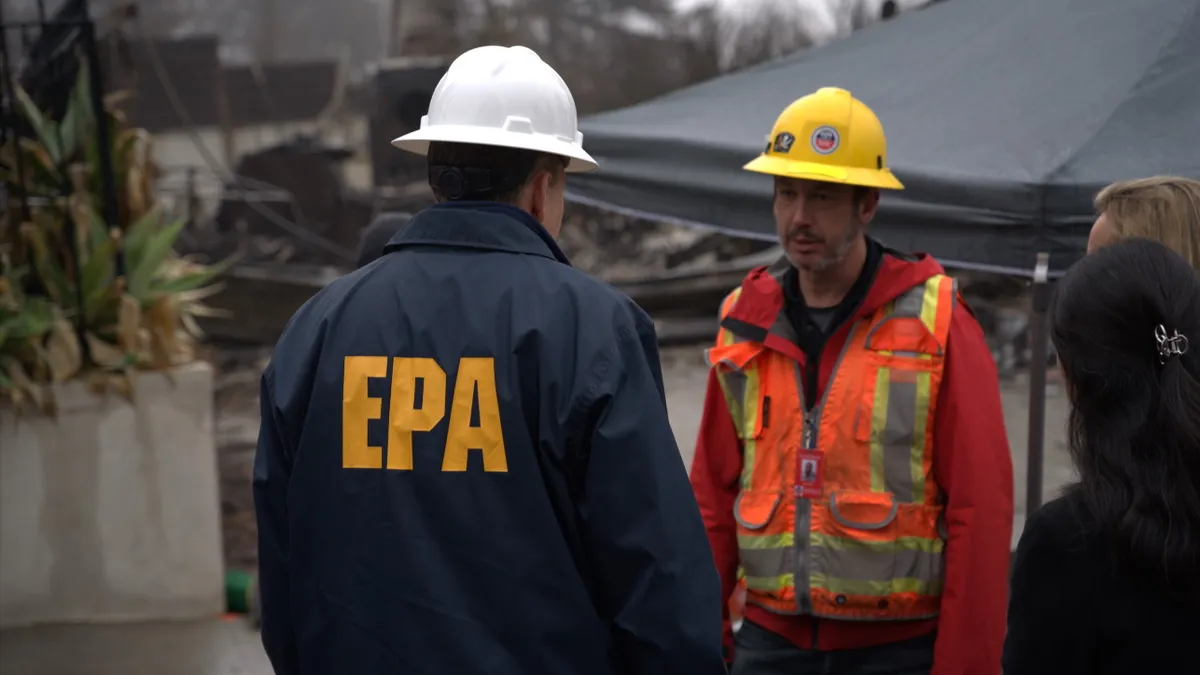Amid a perpetually tight labor market, waste and recycling service providers are trying to get more creative in their efforts to recruit and retain frontline employees — especially drivers. The current state of political uncertainty over U.S. immigration policy has now become enough of a factor that more of the industry's biggest companies are finally speaking out.
"Both parties need to get their s--- together on immigration. It’s a mess," said Waste Management CEO Jim Fish during a session at the WasteExpo investor summit earlier this week. "Washington cannot get its act together on immigration, no matter what party is in the White House."
The comment may have seemed out of character for Fish's mild-mannered public persona, but he is far from the only one who feels frustrated. Waste Dive heard from multiple companies throughout the conference that this is becoming a bigger issue, both in terms of untapped potential employees and current employees that could be deported due to status changes.
Citing his own English ancestors, Fish invoked the history of Ellis Island as a reminder of how many people currently living in the U.S. have immigrant roots themselves. While every company is careful to note they don't employ anyone not authorized to work — Waste Management has been burned before, settling a dispute over the issue with the federal government for $5.5 million last year — they welcome anyone cleared to work that wants to join the team. According to Fish, about a quarter of his drivers are Hispanic, and expanding recruitment to a more diverse population is key to growth.
In an interview with Waste Dive last year, Waste Connections CEO Ron Mittelstaedt estimated upward of 35-40% of people hired into the industry over the last decade have been immigrants. He said uncertain federal policy limited hiring prospects, adding, "I'm a fan of having a policy so that we as a company, and people immigrating to this country, know the rules."
As noted by multiple people, the lack of available labor doesn't just affect staffing. For an industry that depends in part on economic growth fueling higher volumes of waste and recycling to be collected and managed, that is a doubly missed opportunity.
"You can't grow an economy without immigration," said Waste Connections President Worthing Jackman during a panel at this year's investor summit. "I think the U.S. will learn that lesson. It's learning it right now given the lack of labor."
Following his session, Jackman explained those factors to Waste Dive in further detail.
"The reason why home building is only at 50 or 60% of its prior peak, there are no workers to build homes. The government can talk about a $2 trillion dollar infrastructure plan, there are no workers to build anything. And so everybody wants growth ... but without people, it's tough to grow. Ask Japan how the last 30 years have worked out for them in the absence of population growth."
While most avoided getting into any specific policy proposals, everyone Waste Dive spoke to cited the current political stalemate's economic effects. This is reflected in the positions of industry groups as well.
According to the NWRA's 2019 federal regulatory agenda, the association "recognizes the need for sensible immigration reform that allows businesses to address their employment needs." SWANA doesn't have a specific policy in this area, but CEO David Biderman wrote to Waste Dive that "[W]e and our members are concerned about restrictive immigration policies that make it difficult to attract workers, particularly in in a growing economy with an unemployment rate of 3.6%"
Republic Services President Jon Vander Ark said while the issue hasn't become as structurally dire as it might be for other sectors such as agriculture, it's still top of mind for multiple reasons.
"It's a pain point for some of our workers and everyone's affected by it, even for people who don't worry about their own immigration status, they're connected to somebody who is," he told Waste Dive. "I thought Jim [Fish] answered that question extremely well in the sense of, there's a viable practical solution in the middle that gets no airtime, and that we're left kind of getting ping-ponged between the two poles and the answer doesn't sit in either one of those poles."
Asked whether he viewed the issue as more about needing to get new people into the country, or finding ways to utilize those already here, Vander Ark said the latter had a bigger effect. For example, Republic currently has employees from El Salvador, Haiti and Nicaragua who are at risk of deportation if the Trump administration succeeds in revoking certain designations under the Temporary Protected Status (TPS) program. It's unknown precisely how many employees could be affected, given that some may qualify for work authorization through family members, and federal litigation is ongoing.
"[W]hen they automatically pulled the brake on that thing, we had people who were just desperate ... productivity goes down, absenteeism goes up. I mean it's hard for folks," said Vander Ark.
The TPS issue has also been called out by the Teamsters and other unions in the past. Earlier this year, WCA Waste CEO Bill Caesar wrote a Houston Chronicle op-ed about how at least 10 of his company's El Salvadoran drivers are at risk.
"Most of them started with the company riding on the back of trucks collecting trash and recycling from homes. Before that, they were field hands, dishwashers, construction workers and maintenance men," he wrote. "Today, they are highly valued professionals with clean driving records, spotless attendance records and 401K plans."
In an interview with Waste Dive, Caesar emphasized how this could upend lives if people are expected to return to countries of origin they haven't been to in decades.
"They have families here, they have American citizen children here. They have built their lives here. They own homes," he said. "There is a bigger question around broader immigration, but the TPS people, I think it's relatively simple."
Caesar was clear to state all of his employees are authorized to work, but said that may not always be the case for smaller companies. This has become yet another factor to consider when WCA is assessing or integrating acquisitions. As to the broader question of whether higher levels of legal immigration could alleviate the current labor shortage, Caesar said it wouldn't be an instant fix, but past precedent is clear.
"If there were more working class immigrants allowed into the United States, I think it would be obvious that there would be some pressure relief on drivers and other positions within the waste industry," he said, noting the important history of past immigrant groups such as the Italians, Armenians and Dutch in waste and recycling. "The industry has been a natural home for first generation people from various locations."
Compared to that approach, Caesar believes the current administration limits hiring opportunities by favoring those with advanced degrees or specific skill-sets.
"We need people who can do the work that needs to be done today, as well as people who are going to be working on things that are much more sophisticated," he said. "And they should be able to do it in a way where they're not worried about whether they're going to be rounded up and sent home."
Given the political sensitivity of the topic, and the industry's general preference to retain a low profile in such areas, it's unclear how this discussion may unfold. Still, it's obvious that immigration uncertainty has become a rising concern after this week's comments during conference sessions and interviews.
"It is really interesting, because I tried to make noise about this a year ago, and I did not get much attention," said Caesar, welcoming the support from his larger competitors. "I am glad that they have decided to make it an issue, as it is an issue for all of us."
Stay tuned for more of Waste Dive's exclusive interviews and in-depth issue coverage from WasteExpo 2019 throughout the month.























